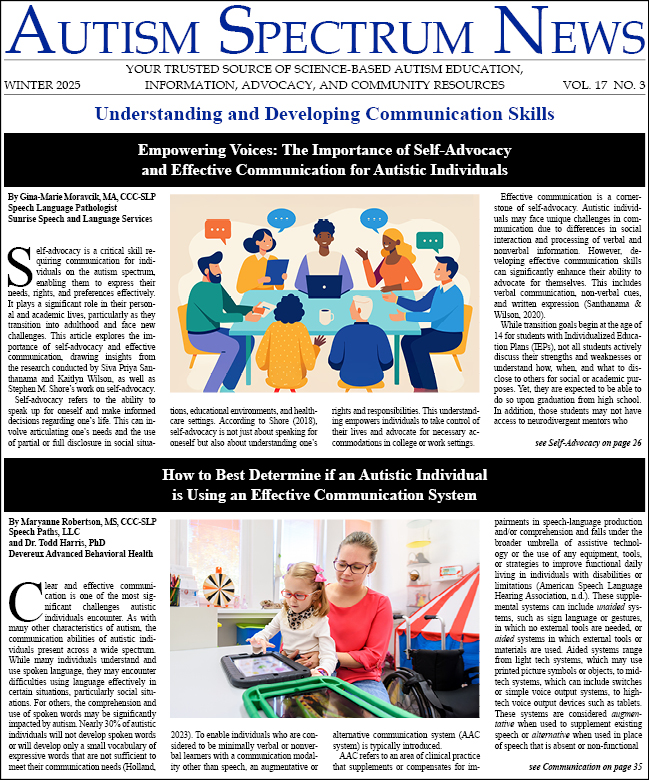-
Using Telehealth to Create a Virtual Community for Adults with Autism
During March 2020, many community-based programs for adults with Autism Spectrum Disorder (ASD) needed to make the difficult decision to suspend in-person services for the safety of all stakeholders. The unexpected interruption in daily operations led to an immediate concern for the overall quality...
-
Talking to Individuals with Autism About COVID-19
“If you are caring for a child or loved one with autism, it is important to speak with him or her about COVID-19 to ensure they have the information and resources they need – without causing unnecessary worry and anxiety.” - Devereux Advanced Behavioral Health Senior Vice President and...
-
Assembling an Emergency Toolkit for Children with Disabilities
In the journey of parenthood, one of the most challenging things caregivers of children can encounter are the inevitable injuries and emergencies. Last year, I had to take my daughter, Annie – who has autism and intellectual and developmental disabilities – to the emergency room (ER). Going...
-
COVID-19: Helping Families With Special Needs During a Public Health Crisis
As a mother of a daughter with autism and intellectual disabilities, as well as a professional in the human services field, I am all too familiar with the unique challenges facing families of individuals with special needs. The COVID-19 (Coronavirus) pandemic brings additional worry. In these...
-
The Importance of Community-Based Instruction for Individuals with Autism Across the Lifespan
When looking toward the future, most parents hope their children will be happy, healthy, and enjoy a satisfying quality of life. For families with a child with autism, this desire is no different. The Autism Society of America identified nine key indicators to consider for assessing and improving...
-
Back to School Tips for Parents of Children with Special Needs
As families soak up the last few weeks of summer vacation, they may be starting to think about back to school tips for the new school year approaching. For parents of children with intellectual and/or developmental disabilities, it can take a significant amount of preparation to create a seamless...
-
Partnering with Your Child’s Doctor to Navigate the Special Needs World
We all want the best medical care for our children, and a crucial part of obtaining proper care is finding a doctor who is knowledgeable, experienced and compassionate. Partnering with the right doctor is especially important for children with special needs, who often require more frequent doctor...
-
Advancing Behavioral Health Strategies as Individuals Approach Adulthood
Individuals connected to the behavioral healthcare system are well aware that autism does not magically disappear on a teenager’s 18th birthday. Yet, the challenges facing people diagnosed with autism spectrum disorders (ASD) shift considerably as they make the transition to adulthood....
-
Early Start: Preparing Adolescents for the Transition Years
The transition years prepare adolescents for life as an adult, including living as independently as possible, securing and maintaining employment and effectively interacting in the community. Children with autism spectrum disorders approaching adolescence and their families are faced with great...
-
Family and Professional Partnerships Optimize Successful Transitions to Adulthood
The Centers for Disease Control noted that from 1994 to 2005, the number of children ages 6–21 years receiving services for autism increased from 22,664 to 193,637 nationally. This explosive increase in the number of children identified with an autism spectrum disorder sounds a warning for the...




